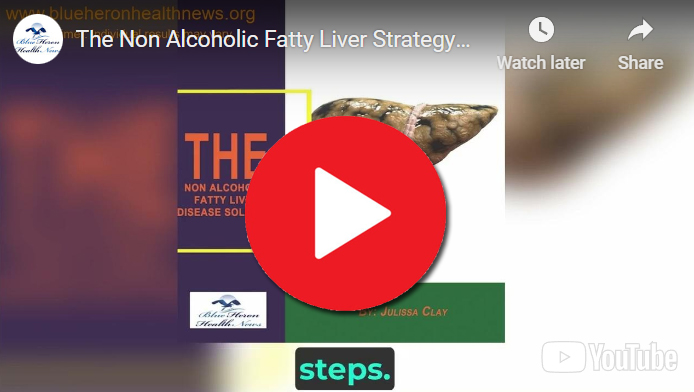
A fatty liver is a health condition that occurs when fat accumulates in the liver. It is becoming increasingly common due to poor dietary habits and sedentary lifestyles. If left untreated, a fatty liver can lead to serious health problems such as liver inflammation and liver scarring. The good news is that there are natural ways to cure a fatty liver, and in this article, we will explore the fastest and most effective methods.
Understanding Fatty Liver: Causes and Symptoms
Fatty liver disease has multiple causes, with the most common being excessive alcohol consumption and obesity. Other factors such as diabetes, high cholesterol levels, and rapid weight loss can also contribute to the development of a fatty liver. It is important to recognize the symptoms of a fatty liver, which include fatigue, abdominal discomfort, and a general feeling of unwellness. If you suspect you have a fatty liver, it is important to seek medical advice for proper diagnosis and treatment.
The Role of Diet in Fatty Liver Disease
Avoiding certain foods and making dietary changes is essential for reversing a fatty liver. A diet rich in fruits, vegetables, whole grains, and lean protein sources can help reduce fat in the liver. It is important to cut down on foods high in saturated fats, trans fats, and refined sugars. Instead, opt for healthy fats such as avocados, nuts, and olive oil. Additionally, incorporating liver-loving foods such as garlic, turmeric, and leafy greens into your diet can promote liver health and aid in the natural healing process.
The Impact of Lifestyle on Liver Health
Alongside a healthy diet, adopting a healthy lifestyle is crucial for curing a fatty liver. Regular exercise can help burn excess fat and improve overall liver function. Aim for at least 30 minutes of moderate-intensity exercise, such as brisk walking or cycling, on most days of the week. Quitting smoking and limiting alcohol consumption are also vital for reducing liver damage and allowing the liver to heal naturally.
Furthermore, stress management plays a significant role in maintaining liver health. Chronic stress can negatively impact liver function and contribute to the development and progression of fatty liver disease. Engaging in stress-reducing activities such as yoga, meditation, or spending time in nature can help alleviate stress and promote a healthy liver.
In addition to diet and lifestyle modifications, certain supplements and herbs have shown promise in supporting liver health. Milk thistle, for example, has been used for centuries as a natural remedy for liver ailments. Its active ingredient, silymarin, has antioxidant and anti-inflammatory properties that can protect liver cells from damage and aid in the regeneration process. However, it is important to consult with a healthcare professional before starting any new supplements, as they may interact with other medications or have contraindications.
Overall, understanding the causes and symptoms of fatty liver disease is crucial for early detection and effective treatment. By making necessary changes to your diet, lifestyle, and incorporating liver-loving foods and supplements, you can support your liver’s natural healing process and improve your overall liver health.
Natural Remedies for Fatty Liver
Although there is no magical cure for a fatty liver, several natural remedies can support the healing process. Taking a holistic approach to liver health is essential in managing fatty liver disease.
Dietary Changes for Liver Health
In addition to a well-balanced diet, certain dietary changes can specifically target fatty liver disease. Increasing your intake of foods high in antioxidants, such as berries and green tea, can help reduce inflammation and protect liver cells. Antioxidants play a crucial role in neutralizing harmful free radicals that can damage liver tissue. Moreover, incorporating cruciferous vegetables like broccoli and Brussels sprouts can support liver detoxification processes, aiding in the removal of toxins from the body.
Furthermore, consuming foods rich in omega-3 fatty acids, such as fatty fish like salmon or chia seeds, can also promote liver health. Omega-3 fatty acids have anti-inflammatory properties and may help reduce liver fat accumulation. Including these healthy fats in your diet can improve lipid metabolism and overall liver function.
Herbal Supplements for Liver Detoxification
Incorporating herbal supplements into your daily routine can aid in liver detoxification. Milk thistle, a flowering herb native to the Mediterranean region, is well-known for its liver-protecting properties. It contains a flavonoid called silymarin, which has antioxidant and anti-inflammatory effects. Dandelion root is another herb that has been traditionally used to support liver health by promoting bile production and aiding in digestion. Additionally, artichoke extract has been shown to help lower cholesterol levels and protect the liver from damage.
However, it is important to consult with a healthcare professional before starting any new supplements to ensure they are safe and suitable for your specific condition. While natural remedies can be beneficial, individual responses may vary, and professional guidance is crucial to optimize liver health and overall well-being.
The Role of Exercise in Liver Health
Exercise plays a crucial role in maintaining liver health and aiding in the recovery process. Various exercises can help reduce liver fat, improve insulin sensitivity, and promote overall well-being.
Moreover, engaging in physical activity can also help reduce inflammation in the liver, which is a common issue in individuals with liver diseases such as non-alcoholic fatty liver disease (NAFLD) or hepatitis. By reducing inflammation, exercise can potentially prevent the progression of liver damage and improve overall liver function.
Best Exercises for Liver Health
A combination of cardiovascular exercises and resistance training is recommended for optimal liver health. Cardio exercises such as jogging, swimming, or cycling can help burn excess fat, while resistance training with weights or bodyweight exercises can improve muscle strength and insulin sensitivity.
Additionally, incorporating flexibility exercises like yoga or Pilates into your routine can help improve posture, reduce stress levels, and enhance overall mobility. These benefits can indirectly support liver health by promoting overall well-being and reducing the risk of conditions that may strain the liver.
How Regular Exercise Affects the Liver
Regular exercise not only reduces fat in the liver but also improves blood circulation, enhances the excretion of toxins, and boosts the overall metabolic rate. These positive effects contribute to the natural healing and regenerative process of the liver.
Furthermore, consistent physical activity can help regulate cholesterol levels, lower blood pressure, and improve heart health, all of which are essential for reducing the risk of developing cardiovascular complications that may impact liver function. By maintaining a healthy cardiovascular system, individuals can support their liver’s ability to efficiently process nutrients and filter toxins from the blood.
Maintaining a Healthy Liver Post-Recovery
Once you have successfully reversed a fatty liver, it is important to maintain a healthy lifestyle to prevent its recurrence and promote long-term liver health.
Recovery from a fatty liver is a significant achievement, but the journey to optimal liver health does not end there. To ensure that your liver remains healthy, it is essential to continue implementing positive habits and making informed choices in your daily life.
Preventing Fatty Liver: Diet and Lifestyle Tips
Continuing with a balanced diet rich in fruits, vegetables, and whole grains will help keep your liver healthy. These foods are packed with essential nutrients and antioxidants that support liver function and aid in the detoxification process. Additionally, incorporating healthy fats such as those found in avocados, nuts, and seeds can help reduce inflammation and promote overall liver well-being.
Limiting processed foods, sugary beverages, and alcohol consumption is essential to prevent the accumulation of fat in the liver. These items can place undue stress on the liver and hinder its ability to function optimally. Opting for whole, nutrient-dense foods and staying hydrated by drinking an adequate amount of water daily are simple yet effective ways to support your liver’s health.
Stress management techniques, such as meditation or yoga, can also support liver health by reducing stress-related inflammation. Chronic stress can have a detrimental impact on the liver, so incorporating relaxation practices into your routine can help maintain a harmonious balance within your body.
Regular Check-ups and Monitoring Liver Health
Even after recovery, it is crucial to visit your healthcare provider regularly to monitor your liver health. They can perform tests to ensure your liver is functioning properly and detect any potential issues early on. These check-ups are vital in maintaining awareness of your liver health status and addressing any concerns promptly to prevent complications.
Moreover, engaging in regular physical activity can further support your liver health by promoting circulation, aiding in weight management, and reducing the risk of fatty liver disease. Exercise not only benefits your liver but also contributes to your overall well-being and vitality.
In conclusion, a fatty liver can be naturally cured by making dietary changes, engaging in regular exercise, and adopting a healthy lifestyle. By understanding the causes and symptoms of fatty liver disease and implementing natural remedies, you can speed up the healing process and promote long-term liver health. Remember, consistency and commitment to a healthy lifestyle are the keys to the fastest way to naturally cure a fatty liver.
See More on Video

The Non Alcoholic Fatty Liver Strategy™ By Julissa Clay The program provided in this eBook is very reasonable and realistic as it neither restricts your diet miserably so that you cannot stick to the changes in diet suggested in it nor wants you to do intense exercises for many hours every week.